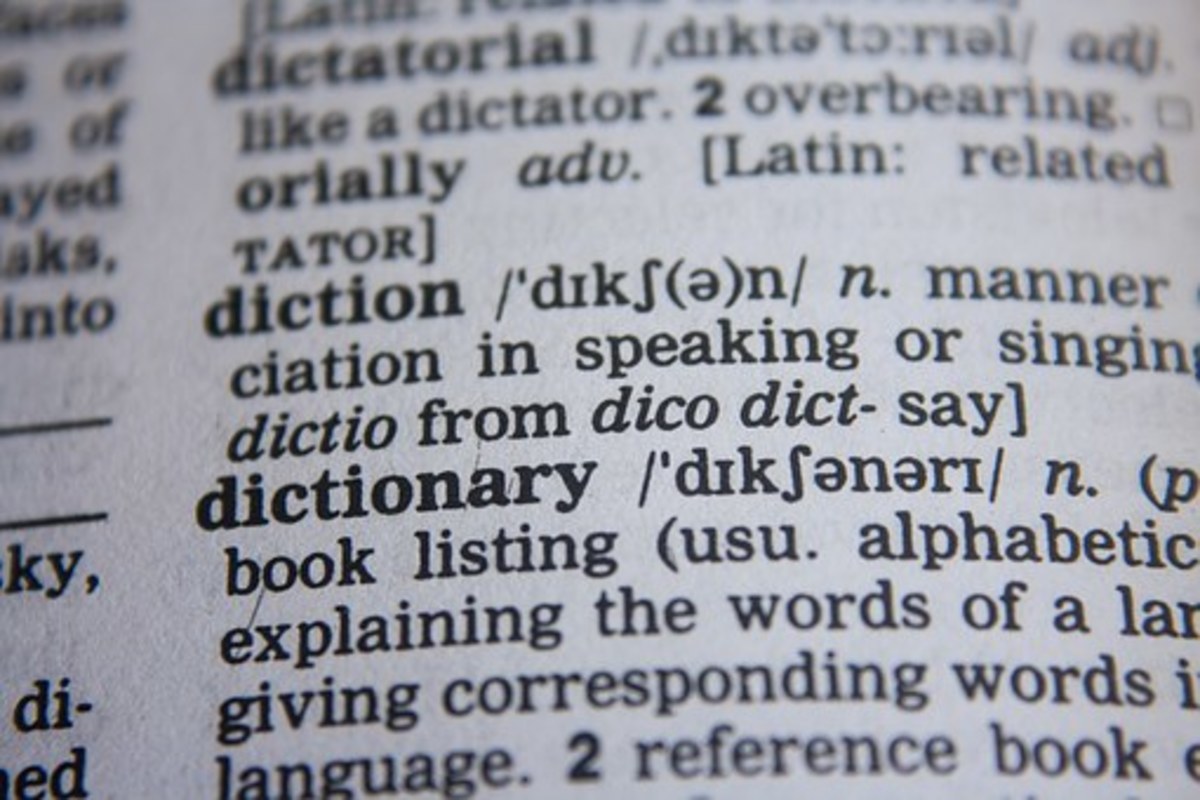How To Prepare For A Foreign Language Oral Or Speaking Exam And Succeed And Do Well

Thousands of people are studying foreign languages all over the world and a lot of them find it very stressful to take speaking exams. This fear is often due to not knowing what to expect, being afraid of not knowing what to say, being insecure about your speaking abilities, or simply being shy. There are a lot of people that can't help but worry, despite the fact that worrying is the biggest mistake you can make at an examination like this. This article is here to help you prepare no matter what language you are learning, increase your confidence in your own abilities and help you get the best mark you can. Despite the fact that this techniques are aimed at foreign language verbal examinations, you should feel free to use them in oral examinations in other subjects, at job interviews, presentations or whenever you are expecting a stressful conversation that you want to handle with success.
1. Learn The Requirements And Criteria
When you are preparing for or taking a speaking exam in a foreign language, you shouldn't be doing it in the dark. As any examination situation, you need to be aware of the marking criteria in order to make sure you adjust your behavior and speech in such a way that you earn the highest number of points. Sometimes by simply being aware of the requirements and criteria you can significantly increase your score.
This means that you should make an active effort to learn that information. You should ask your teachers and advisers, and if you are taking a standardized exam, you can even contact the authority that is organizing and solicit that information. Usually this information is not a secret and your teachers would gladly explain to you what they expect to see during the examination in order to give you a good mark.
So after you know what are the criteria, make sure you understand it and keep it in mind at he actual exam. Whatever you say, make sure it covers some part of the criteria and try to avoid doing things that will cost you valuable points off your score. For example, some examinations put a stronger emphasis (allocate more points) on fluency and vocabulary, while other are looking for correct grammar with proper usage. So you should concentrate on those areas and aim at covering them properly.
2. Play It Safe - Being Interesting Or Speaking Your Mind Should Not Be Your Priority
Let's make something clear. You are at that exam in order to get the best mark you can. Impressing the examination board with your philosophical insight or speaking your mind and voicing your opinion is not important at all. The people you are talking to are likely to concentrate on other things rather than content and so should you. There is nothing wrong with being interesting, but there are things you should achieve first before starting to care about content.
In my teaching experience I've seen countless cases of people who are excellent getting very disappointing scores on their speaking exams. One of the main reasons for this to happen is their desire to say something specific and interesting that they cannot say properly. So they start making grammar and vocabulary mistakes, making pauses, strange noises and even blurting out things in their native languages. They aim at saying something interesting or at simply sharing their personal opinion, but they end up losing a lot of points from their exam score due to all the mistakes and the inability to express their point clearly.
At the same time, much less capable students are getting excellent marks instead of them, because they pay attention to what they are saying and instead of focusing on the content, they are focusing on keeping the things they are saying simple and more importantly correct. And this is what you should do. You should make sure you are saying things you know how to say, use vocabulary that you know well and use grammar that you know you can use correctly. It's not something hard to do if you pay attention to it, but you just need to be in the proper frame of mind. For example, if you receive a question about your pet and you have a dog, but forgot the word for dog, don't start mumbling and trying to remember the word. Just pick a word you remember and roll with it. Tell them you have a cat, a fish, or a bird and start inventing a story around it, using vocabulary and grammar you are confident about. Nobody cares if you have a cat, or a dog, or a dinosaur in reality. What they care about is if you are speaking the language properly and you must use this to your advantage.
Remember - you don't need to say something true, you need to say something correct.
3. Listen To The Instructions And Questions Carefully
This sounds pretty obvious, but you will be amazed to learn how many people fail exams due to not following the instructions or answering the wrong question. Sometimes people are so stressed about what they need to say that they start thinking about it before they have heard or understood the instructions or question. This makes their answer inadequate and seriously hurts their exam performance.
What you need to do to avoid this is simply concentrate on the instructions or question while they are being given to you, and only after you are sure you've understood them, start giving your answer. If you don't understand something, it's often better to politely ask the examining board to repeat, instead of answering something you hope is on topic. It's not hard, it's not complicated - you just need to remember to do it.
A Suggested "Pool" Of Speaking Topics*
- Introducing Yourself
- Describing People (looks, hair, hight, stature, eyes, attractiveness, age, attitude, personal qualities)
- Describing Nature
- Talking On The Phone
- Giving Directions
- Describing Your House, Neighbourhood, and Town
- Describing Hobbies (choose a few and develop them)
- Describing A Job (choose a few and develop them)
- Talking About Your Daily Routine
- Describin The Weather
- Talking About A Dream You Have For The Future
- Talking About Your Favourite Subject In School
- Talking About Your Favourite Movie(s)
- Talking About Your Favourtie Book(s)
- Talking About Sports (choose a few and develop them)
*If you are studying with a textbook, you can alsways use the units of the textbook or the readings as an inspiration and guide about the topics you should add to your pool. Your pool should always correspond to your curriculum and the requirements for the particular exam you are taking.
4. Prepare In Advance With A "Pool" Of Topics You Can Speak On
Depending on the examination, there are a lot of topics and tasks that are to be expected like introducing yourself and talking about your interests, occupation or experience and describing what you see on a picture. Doing step one from this list would also help you here. You should know what is expected of you, so you can apply this knowledge in choosing the topics you are going to prepare on.
You should try to come up with a reasonable number of broad topics and review and practice talking about them. This includes looking up or brushing upon vocabulary that might be useful and gathering ideas, so you would not need to have to come up with something new when they ask you to talk about it. Don't bother learning things by heart because it's usually obvious to the examining board that you've done so and the question could always be a bit different than what you've come up with. You should just try to revise the vocabulary from the topics and practice with a few examples. No need to overdo it.
Now here is something important that you need to do and try practicing - you should try to connect any question that you can be asked with one of the topics in your "pool". If you have selected your topics well, this shouldn't be a problem and if you keep it in mind, you should be able to do in the exam setting as well. For example, if they ask you about something interesting you have done in the past week, you can remember that you have revised vocabulary and ideas about your favorite leisure activities, pick one of them that you feel comfortable talking about, and tell them you did it two days ago, you liked it very much and you are looking forward to doing it again. Spinning the question into something you are comfortable speaking about is a very useful skill and is something that develops quickly with a bit of practice and attention.
Additionally, having such a pool of topics you can count on will help you feel prepared and this is the best way to overcome nervousness and avoid worrying. It's much easier to be calm when you feel confident.
5. Speak!
(before the exam)
Well, this might sound both simple and obvious, but there are a lot of people who are having a very hard time breaking this barrier. They are simply too shy to show how much they know. You should not let yourself be one of them and there are things you can do to avoid it.
The first thing you need to do is to prepare. If you are afraid of speaking the foreign language, you should work to overcome it. You need to practice speaking until it becomes more natural and if you are embarrassed to do it in front of other people, start practicing by talking to a pet or a toy. Pick one of your topics and just see how long you can keep adding new things. When you run out, change the topic, but make sure you don't stop speaking. The more you practice, the easier it will be later on and if you are dedicated to learning a foreign language, this will be helpful not just for the exam.
(during the exam)
The second aspect of the call for speaking is on the exam. This is as obvious as it gets, but here it goes anyway: while on the exam, you need to remember to speak. There are many people that answer every question the examining commission throws at them with one word, and then sit and wander why they failed or received an unsatisfactory mark. It's because they simply didn't speak, so don't repeat their mistake. It's a speaking exam, so speak. Try to answer every question or task with at least a few sentences, not with just one or two words. Don't be afraid to say things that are obvious and boring. As long as you say them correctly, it's much better than saying nothing. Usually the examining board can deduce points off of your score for silence and for mistakes, but not for being boring. And even if there are points dedicated to how interesting your speaking is, they are very few and much less than the points devoted to grammar, vocabulary and fluency. But don't take it for granted. Do your work at step one.
Another important piece of advice is don't speak too fast. Speaking quickly is a natural reaction when you are stressed, but you should do your best not to give in. When you speak too quickly, this often makes you less understandable, you make more mistakes, and you don't have enough time to think of what to say next. When you speak in a confident, clear and mid-tempo voice, it will make it easier both for you and for the examining board. So practice this at home and make sure you don't overdo it and start speaking with two words per minute, because it will not make you look good either.

6. Smile :)
Despite the fact that the people in the examination board will most probably try to be objective, they are still human and could fall prey to personal preference. And the easiest way to inspire personal preference towards yourself is by smiling at them. Don't underestimate the power of the smile. Enter the room smiling, greet everybody cheerfully and don't let the smile go off your face. When you're smiling, what you're saying will seem more interesting and your mistakes will seem a bit more charming. Take advantage of human psychology and let your smile disarm even the grumpiest of examination board members or teachers. It doesn't require much effort and even if it doesn't make things better, it can't hurt. Additionally, having a smile on your face would automatically trick your brain in feeling better and this might also help your confidence and performance.
In Brief:
Prepare well: research the criteria, prepare topics you can speak about, look up additional vocabulary, practice speaking as much as you can
Be concentrated during the exam: Keep in mind what is expected of you and what the criteria are; try to say only things you are sure you can say correctly; think on your feet and always steer the talk or conversation in a direction that is comfortable for you and spin everything towards your topic "pool"; speak clearly, loudly and confidently without hurrying and don't forget to smile.








